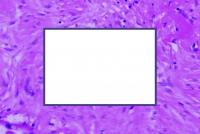Breast cancer development, growth and metastasis all have been reported to be promoted by systemic inflammation. Increasing evidence suggests that diet can contribute to inflammation. Now a major prospective study has linked proinflammatory diets to increased breast cancer risk.
Acute versus systemic inflammation
Acute inflammation occurs after an injury, infection or exposure to certain irritants, and causes temporary symptoms such as redness, pain, swelling and heat. On the other hand, systemic inflammation is a persistent state that involves the chronic activation of the immune system. This results in an increase in C-reactive protein (CRP), a compound produced by the liver, among other markers of inflammation. CRP can be measured using a simple blood test.
Reducing inflammation
Inflammation has been shown to lead to the transformation of normal breast cells into cancer cells through the activation of distorted inflammatory signaling. Breast cancer patients tend to have high levels of markers of inflammation at diagnosis compared to the general population. However, inflammation can be reduced through diet, increasing the level of physical activity, losing weight if appropriate, and avoiding smoking, as well as effectively treating hypertension, high cholesterol or type 2 diabetes if present. Frequent small meals and completely eliminating night time eating was found to reduce CRP in one study.
Latest research reports proinflammatory diets increase risk
The prospective study referenced above was designed to investigate whether a proinflammatory dietary pattern (the empirical dietary inflammatory pattern (EDIP)) is associated with breast cancer. The validated EDIP used in the study was developed using data from food-frequency questionnaires to compare dietary data to circulating inflammatory markers (CRP, IL-6, and TNFα-R2) in order to determine which food groups are more or less inflammatory.
To conduct the study, the authors prospectively followed a total of 169,272 women (76,386 from Nurses’ Health Study (NHS, 1984-2018) and 92,886 from Nurses’ Health Study II (NHSII, 1991-2019)). Food frequency questionnaires were administered every four years, starting at baseline, to estimate the inflammatory potential of the participants' diets using the validated EDIP. The authors assigned an EDIP score to the diet of each study participant. Higher scores signified higher dietary inflammatory potential. The women were divided into five groups (quintiles) based on their scores.
A total of 11,026 breast cancer cases were documented among study participants during 4,490,842 person-years of follow-up. Women in the highest EDIP quintile were found to have modestly higher breast cancer risk overall than those in the lowest quintile. The association was stronger for estrogen receptor negative (ER-) tumors — the strongest association was with basal-like tumors (including triple negative (ER-/PR-/HER2-) disease). The authors conclude that diet-related inflammation appears to "play a role in breast cancer etiology, particularly tumors lacking hormone receptors."
Please see our article on inflammation for lists of foods that reduce or promote inflammation.
